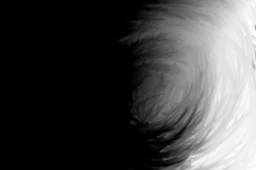No Perfect Villian
- September 27, 2017
- by
- Joe Danehower
If you’re not on Twitter, you’re missing out on instant news, lightning wit, and a thin veil between rock-star celebrity and the average joe. It’s a stimulating stream of humor and reaction; an amplified voice available to the masses. You have access to see a moment of life and experience beyond your typical bounds.
If you’re not on Twitter, you’re missing out on brash hatred, obscure opinions shrieking from the dark corners of the internet, and the absence of restraint and common decency. It’s a scary and twisted barrage of judgment crashing in every direction. You are exposed to unbridled vitriol launched from one screen to another, stripping away any chance of genuine human encounter.
Twitter is good. Twitter is bad.
Surprisingly, this online medium has become the megaphone of choice for the man many would call the most powerful in the world. President Trump has used Twitter to galvanize his supporters, heckle his opponents, and maybe even declare war depending on who you ask (don’t be shy North Korea, I know you’re reading this). I’m sure many have wondered in disbelief why the White House has yet to confiscate his phone like a middle school girl in detention, but I guess this is 2017 after all.
It’s unnerving to see the President push his late night boastings and verbal jabs out to the public in emphatic absolute phrases, leaving no room for nuanced thought or careful language. It’s unnerving to consider this man is actually leading our country. We see a few words, and if momentarily damning, we stretch our reaction to what was said over the entirety of who he is.
But what if we are wrong? Can we ever accurately and righteously judge another from a singular thought, or even from a consistent verbal narrative? Before you think this is a defense of Trump, and slam your laptop down in disgust or clap your hands in delight, know there is something beneath the surface far more important to consider.
Trump is good. Trump is bad.
You can argue the extent of either, but you cannot say he is all one or the other. Why?
We are both.
I am both.
You are both.
If we allow ourselves to honestly probe our own depths, we find a beautiful mess of creativity and destruction, love and hatred. It is the human existence to be something called “good” by God, and not only living in darkness and division but creating it as well. This thought is upsetting and disagreeable with anyone’s self-perception. No one seeks to see themselves as anything other than good.
But consider for a second if your thought life were a live stream on Twitter, would you be proud of what others saw? How long before your voicemail was full of upset friends and family members, or before you became the scapegoat for the internet netherworld to target and troll? If all of everyone’s thoughts were known, even those we bury beneath self-justification and deception, I wonder if there would be anyone left deemed lovable or worthy of acceptance by society’s standards.
This is not meant to be an exercise in self loathing, but more so to point us past judgmental inclinations and the innate desire to label those we interact with. It’s human nature and even proven psychology that our brains deal with the daily torrent of information by placing things and people into categories and bins. We reduce the nuances and layers of a person to fit into tidy words like “good” or “evil.” We leave no room to see someone in full array, not even ourselves. This is where stereotypes build, and at our worst bigotry and hatred brood.
We cannot fully subvert this biological and psychological tendency to bin and label, but at the very least we can grow aware of this tendency and slow our impulse to judge or reduce another. By admitting to ourselves that we are a beautiful mess of light and darkness, we can begin to see others likewise.
But merely accepting our own mottled identities isn’t enough. If left up to us, we would still accept or condemn based on the amount of “good” or “bad” we saw in a person. We need a new standard, one that comes from outside of ourselves given by the One who knows all of everyone. God is intimately aware of every notion, and still chooses to love, know, and accept. He sees the live stream of your thoughts, and still comes near. It is only out of unconditional acceptance and belonging that we can ever offer the same to another. In Him, our mottled identities find ground. In Him, we can see others outside of labels and judgement.
If Twitter, the digital roar of 300 million voices, is both beautiful and dark, maybe it’s time to admit we are as well. Maybe, just maybe, we aren’t that different from President Trump after all.
You can slam your laptop down now.






